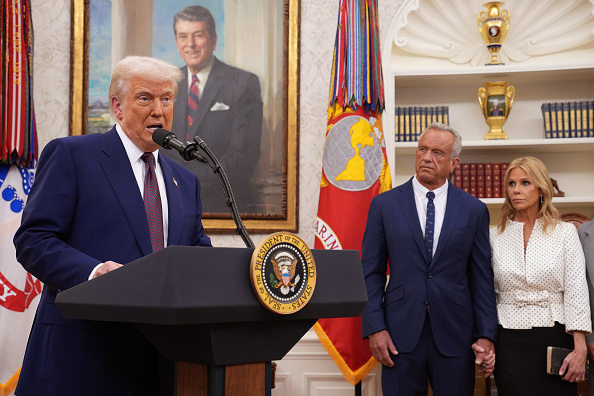U.S. Health and Human Services (HHS) Secretary Alex Azar has directed the Food and Drug Administration (FDA) to establish a working group to weigh the risks and rewards of drug importation, which is currently banned in the United States.
The directive comes in response to escalating drug prices and shortages of a variety of medications on which Americans depend, HHS stated in a press release.
Concerned About Price Hikes
“President [Donald] Trump and Secretary Azar have consistently maintained that HHS is willing to explore all ways to tackle the soaring price of drugs while protecting incentives for innovation and maintaining standards of patient safety and access,” the HHS press release announcing the formation of the working group stated. “The working group will examine importation of drugs that have seen significant price increases or significant access challenges for patients.”
“We look forward to working with [FDA] Commissioner [Scott] Gottlieb and the FDA to explore how importation could help address price hikes and supply disruptions that are harming American patients,” the July 19 release quotes Azar as saying. “We have seen a number of both branded and generic examples in recent years where a single manufacturer dramatically hikes the price for a drug unprotected by patent or exclusivities. In the 2015 case of the drug Daraprim, we saw the list price of a drug approved by the FDA in 1953 increase by more than 5,000 percent.”
Payback Time
Under current patent law and FDA regulations, drug manufacturers have an exclusive patent period of 20 years before other companies may sell generic versions of the drug’s formula, giving manufacturers a two-decade window in which to recoup the money they spend on research, development, and government approval of new drugs.
The lengthy FDA approval process for new drugs typically takes eight years before a drug is deemed safe for consumers. Many drugs are ultimately not approved by the FDA, resulting in companies losing billions of dollars on products that never reach the U.S. market.
Protecting IP Rights
The FDA working group will address the goals laid out in President Donald Trump’s American Patients First Blueprint, the administration’s plan to reduce drug prices and lower out-of-pocket costs, which was released in May.
Under Azar’s direction, “This working group will examine the potential to promote competition for drugs that are off-patent or off-exclusivity and produced by one manufacturer,” the HHS release states. “This stands in contrast to proposals to import a broader range of drugs, which raise additional questions about how to protect American patients.
“Because the drugs being considered for importation are off-patent and have no exclusivity remaining, the proposals contemplated by the working group would not dilute intellectual property rights or affect incentives for innovation,” the release states. “Rather, they would provide a new avenue for competition to drive down prices for American patients.”
Concerns About Quality
Sally C. Pipes, president, CEO, and Thomas W. Smith Fellow in Health Care Policy at the Pacific Research Institute and a policy advisor for The Heartland Institute, which publishes Health Care News, says she’s concerned about the quality of imported drugs if the program should expand beyond the current proposal under a future president.
“There is no way to import drugs from abroad while guaranteeing patients’ safety,” Pipes said. “It would be nearly impossible to source medicines only from reputable suppliers in developed countries. An FDA investigation of illegally imported medications revealed that half of the pills were advertised as Canadian, but 85 percent originated in other countries. There’s a risk that if the FDA opens the door to limited importation now, a future administration may greatly expand the program and permit importation in nearly all cases.”
Pipes recommends trying deregulation first.
“The way to reduce drug prices in the United State is to reduce regulatory burdens placed on manufacturers and to promote competition in the drug industry,” Pipes said.
Chris Talgo ([email protected]) is an assistant editor at The Heartland Institute. Emma Kaden ([email protected]) writes from Arlington Heights, Illinois.





